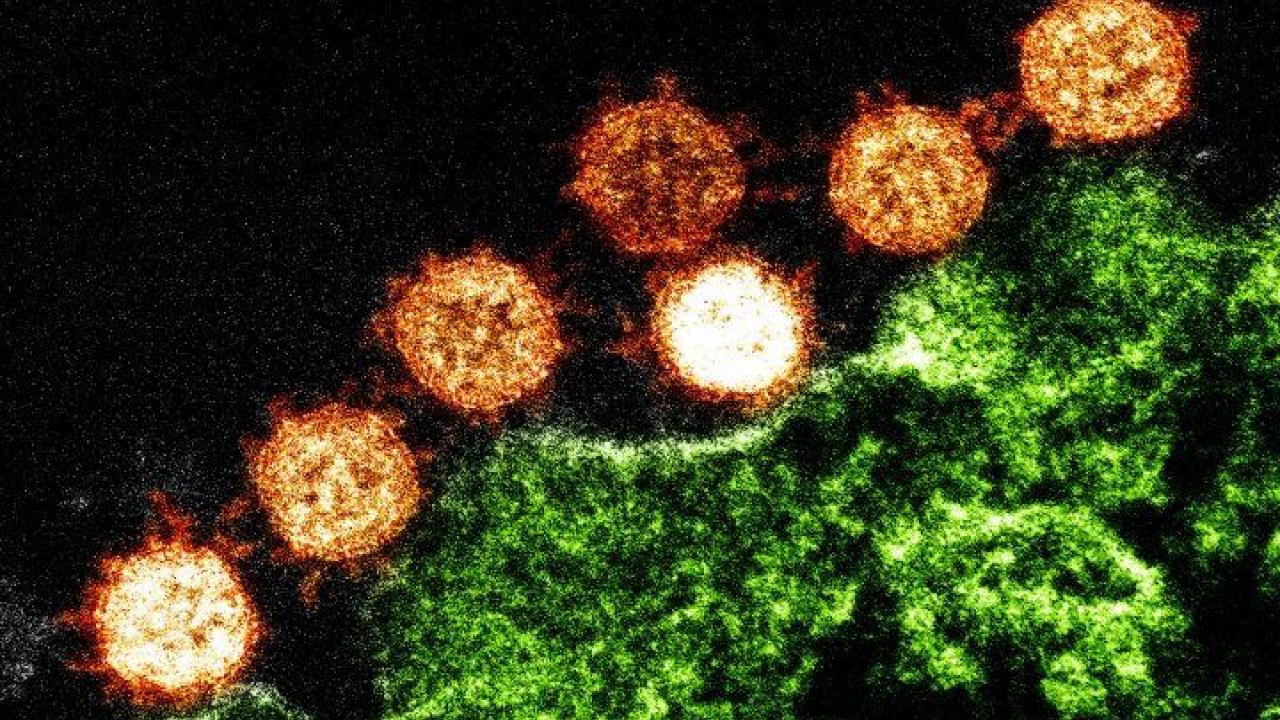
In the quest for new treatments for COVID-19, a team led by researchers at UC San Francisco has identified a new potential drug target that may block infection by SARS-CoV-2. The protein, called BRD2, regulates the ACE2 receptor, which the novel coronavirus relies on to gain entry to its host’s cells.
In their new study, published Jan. 13 in Nature Cell Biology, the researchers found that blocking production of BRD2 prevents the virus from infecting a variety of human cell types.
“We’ve known that BRD2 regulates expression of other genes, including those that help promote tumor growth in some cancers,” said Martin Kampmann, PhD, an associate professor of Biochemistry and Biophysics and senior author on the study. “Having discovered how the protein regulates ACE2 means that pathway could potentially be manipulated to make it harder for SARS-CoV-2 to infect cells.”
Unlike many of the proteins being studied as potential targets against COVID-19, BRD2 isn’t produced by the virus, but by the cells of its human host. The protein and others related to it are currently being investigated in clinical trials as targets for cancer drugs.